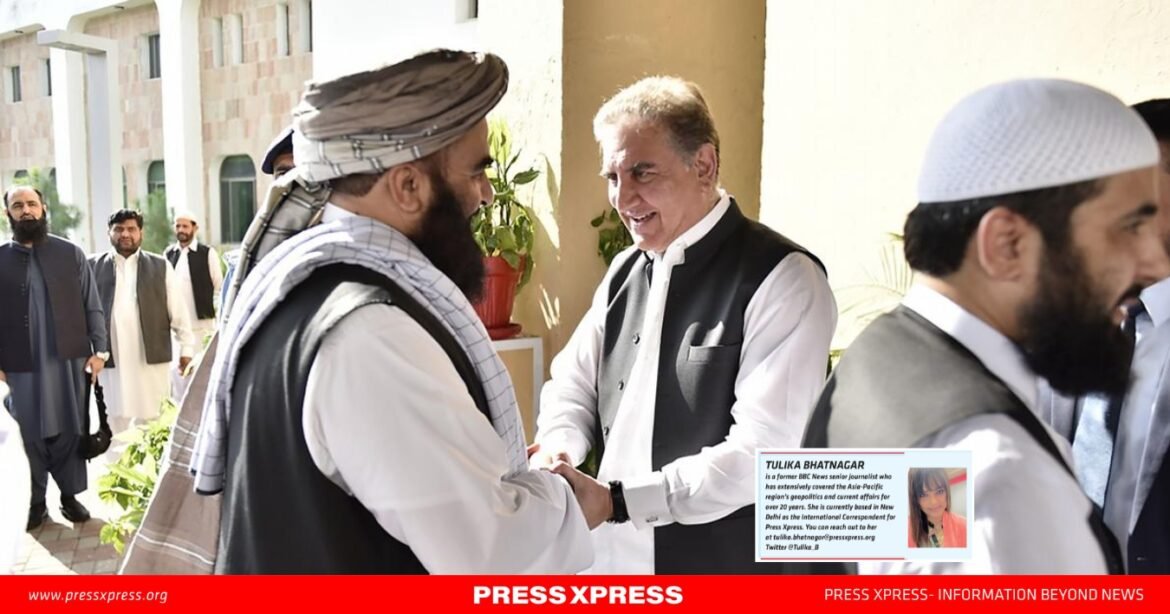India’s recent outreach to the Taliban has raised eyebrows in Pakistan, which is already stressed by the further strain in its ties with New Delhi over an alleged active engagement in the Bangladesh crisis. This diplomatic tension has heightened Pakistan’s concerns about India’s regional influence and its evolving relationships in South Asia.
“Whenever differences and tensions appear in Pakistan-Afghanistan relations, India finds an opportunity to increase its space and deter Afghanistan’s fraternal neighbourly relations with Pakistan,” said Mansoor Ahmad Khan, Pakistan’s former ambassador to Afghanistan, in a report published in Pakistan newspaper website Dawn.com.
Khan called India’s actions “very predictable”.
On 8 January, India’s Foreign Secretary Vikram Misri met with the Taliban’s Foreign Minister Mawlawi Amir Khan Muttaqi in Dubai, marking the first highest-ranking outreach since the Taliban’s takeover of Afghanistan in August 2021.
“It is particularly significant coming in the backdrop of New Delhi’s deteriorating ties with Dhaka, and Islamabad’s air strikes in the Paktika Province of Afghanistan,” according to Maj Mohommed Ali Shah, defence and strategic expert.
“There has been a turnaround in the equation. Pakistan backed Taliban for over two decades, following the Good Taliban-Bad Taliban policy, where the Tehreek-e-Taliban Pakistan (TTP) was the terror module, while Afghan Taliban was the good one. When Afghan Taliban took over Kabul in 2021, Pakistan was under the illusion that Afghanistan will now be deeply indebted to Islamabad for its long-standing support. But this backfired,” Maj Shah explained.
In the last three years, there has been a spike in attacks and counter-attacks between the two neighbours. According to a recent report published by the Islamabad-based Centre for Research and Security Studies, Pakistan’s security forces killed 934 terrorists in 257 security forces operations in 2024, but it also lost at least 685 personnel in 444 terrorist attacks during the same time period, making it the deadliest year for Pakistani security forces in a decade.
This turnaround in Kabul-Islamabad ties is a strategic and psychological win for India, says Maj Shah.
“It leaves the field open for India,” says strategic affairs expert Sushant Sareen, adding that “2025 does not promise to be a very good year” for Afghan-Pakistan ties. “The Taliban are not going to play the Pakistani game,” he said in a video posted on HT.com.
Other observers feel this deepening of ties between New Delhi and Taliban is also a natural progression over the years.
According to Kabir Taneja of Observer Research Foundation think tank, “the Taliban is a reality, and ignoring Afghanistan and the Afghan people is not an option (for India)”. India has always had a “cautious and protracted approach to the Taliban’s reality in Kabul since 2021”, he told Al Jazeera.
Bangladesh connection
The Taliban also remain relevant to India’s increasing problems with its eastern neighbouring country Bangladesh after the fall of the Sheikh Hasina government last year.
Al Qaeda has expanded its footprint not just in Afghanistan but also in Bangladesh, said Maj Shah. “If you connect the dots, I won’t be surprised if Bangladesh becomes the next hot bed of militant activity in 2025.”

Given the ideological alliance that Taliban shares with Islamist militant groups such as Al Qaeda, India could use this as an advantage to protect its own security concerns.
“The interim government under Mohammad Yunus is increasingly aligning with Pakistan, while the Arakan Army in Myanmar is expanding its influence near Bangladesh’s borders,” said Maj Shah, adding that “2025 could be the year of proxy wars in India’s neighbourhood”.
Pakistan’s intelligence agency ISI have become active in Bangladesh, allegedly supporting extremist forces to install a pro-Pakistan rule in the longer term. Adding to that, Yunus’ recent remarks urging the Bangladesh Army to remain ready for war have ruffled feathers in South Asia.
New Delhi is especially concerned about Dhaka’s decision to purchase light tanks from Turkey, seemingly for deployment along the Indian border, according to a report in Nagaland-based Mokokchung Times.
Given this ticking time bomb, Pakistan is now highly irked that while its ties with Taliban are on a dangerous and rapid decline, India is stabilising relations with Kabul. Islamabad has lost the plot, says Tara Kartha of Institute of Peace and Conflict Studies on NDTV.com.
“That’s the bottom line that Pakistani leaders need to recognise. They can either have their country at peace or a group of insurgents at war. They can’t have both.”
While the rest of South Asia and the wider region is focused on economy, connectivity, and trade, Pakistan is blaming everyone for terror attacks while spiralling more conflict in Afghanistan and Bangladesh.


